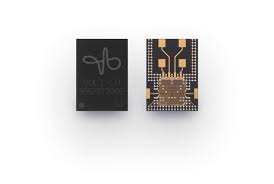
Article by
Google is at the forefront of technological innovation, and the company's latest breakthrough in sensor technology is no exception. In a recent announcement, Google has unveiled a new radar system that is capable of detecting and tracking the movements of objects in real-time. The system, called "Soli," uses miniature radar sensors that are small enough to fit into a mobile phone or smartwatch.
Soli represents a significant leap forward in the field of radar technology. Traditional radar systems are large, expensive, and require a significant amount of power to operate. Soli, on the other hand, is incredibly small and consumes very little power, making it an ideal candidate for use in mobile devices.
The radar system works by emitting electromagnetic waves that bounce off objects and return to the sensor. By analyzing the reflected waves, Soli can determine the size, shape, and location of objects in its vicinity. This allows it to track hand movements and even detect subtle gestures like finger movements or the flick of a wrist.
One of the most exciting applications of Soli is in the field of human-computer interaction. By integrating the radar system into mobile devices, Google hopes to create a more intuitive and natural way of interacting with technology. For example, Soli could allow users to control their devices with simple hand gestures, eliminating the need for physical buttons or touchscreens.
Another potential use case for Soli is in the field of healthcare. The system could be used to track the movements of patients, allowing doctors to monitor their progress and provide more personalized care. Soli could also be used to track the movements of surgical tools during procedures, improving the accuracy and precision of surgical interventions.
However, like any new technology, there are also concerns about the potential impact of Soli on privacy and security. The radar system is capable of detecting extremely fine movements, which could be used to track user behavior in ways that some may find intrusive. Google has stated that it is committed to protecting user privacy and that Soli will only be used in ways that are consistent with its privacy policies.
Overall, Google's Soli radar system represents a major breakthrough in sensor technology. Its small size, low power consumption, and high precision make it a promising candidate for a wide range of applications, from human-computer interaction to healthcare. While there are certainly concerns about privacy and security, the potential benefits of this technology are too great to ignore. It will be exciting to see how Soli develops and how it will change the way we interact with technology in the future.
 Monthly "Azeem English Magazine", launched in 2000, records the information about diverse fields like mental health, literature, research, science, and art. The magazine's objective is to impart social, cultural, and literary values to society.
Monthly "Azeem English Magazine", launched in 2000, records the information about diverse fields like mental health, literature, research, science, and art. The magazine's objective is to impart social, cultural, and literary values to society.
+92 51 88 93 092
First Floor, RAS Arcade, Eidhi Market, Street#124, G-13/4, Islamabad, Pakistan, 44000.